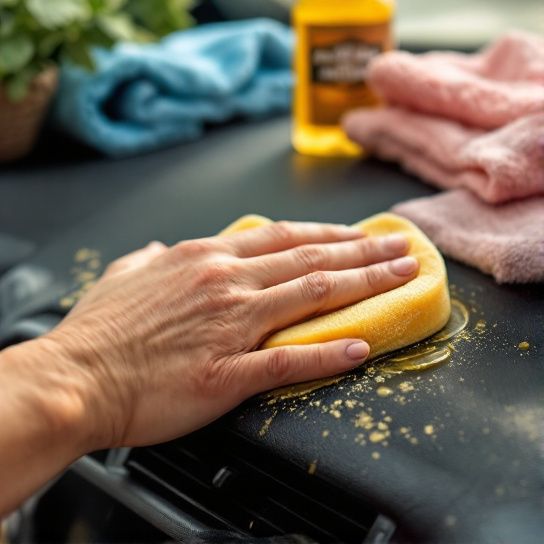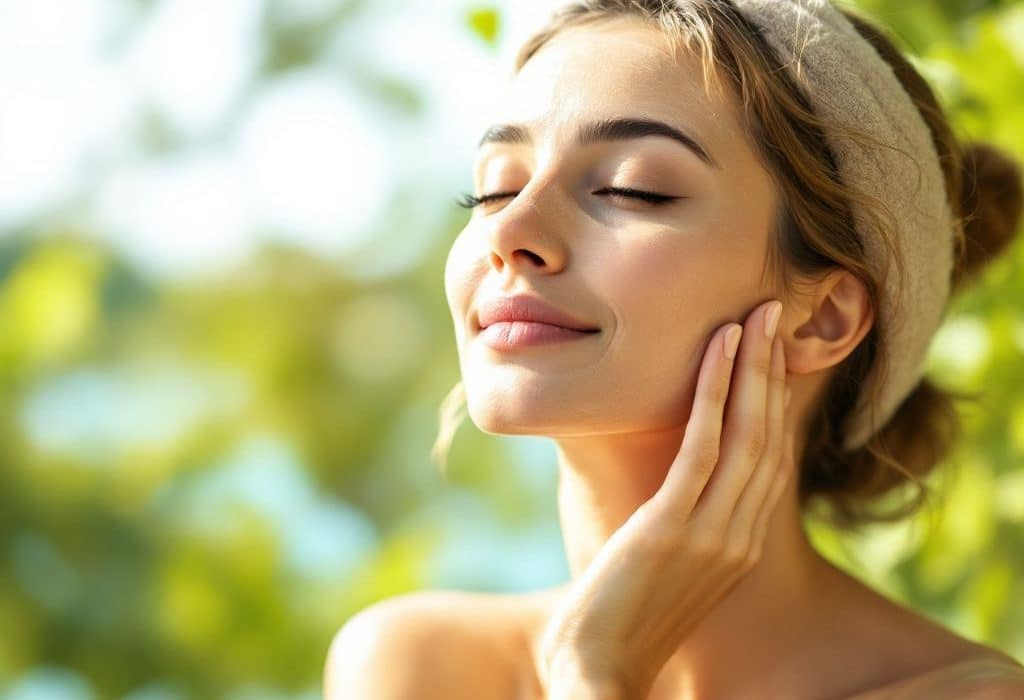Ah, kombucha. Maybe you’ve seen it on shelves at your local grocery store, watched friends sip on it, or heard whispers of its gut-loving powers. But have you ever wondered if this fizzly elixir could elevate your natural beauty routine? Let’s dive into the science behind kombucha’s beauty benefits and how this ancient tea might just become the secret ingredient your skin’s been craving.
You might be thinking, “Isn’t this a drink for digestion?” Sure, but it turns out it’s got a lot more to offer. Fermented tea, particularly kombucha, is teeming with probiotics, antioxidants, and vitamins that can work wonders for your skin. Trust me, it’s worth the hype.
The Beauty Within the Brew: Why Kombucha Works
Fermented Tea: A Natural Powerhouse
First things first, let’s gab about fermentation. This process transforms plain ol’ sweet tea into a bubbling, probiotic-rich potion known as kombucha. The magic ingredient? Yeast and bacteria cultures, creating a symbiosis that leads to a nutrient-packed beverage loaded with B-vitamins, amino acids, and enzymes, not to mention antioxidants courtesy of the tea leaves themselves. Doesn’t that sound like a treasure trove for glowing skin?
Probiotics: Your Skin’s BFF
Probiotics are the listen-when-you-speak kind of friends your gut loves and guess what? Your skin adores them too. Kombucha’s probiotics help maintain the skin’s natural flora, basically ensuring your skin community is as thriving as Taylor Swift’s latest concert. A balanced skin microbiome can save your skin from unwanted breakouts and sensitivity. If kombucha’s tiny warriors can help soothe inflammation and redness, I’ve gotta ask—what’s not to love?
Antioxidants: The Age-Defying Warriors

You’ve heard about antioxidants: think of them as your personal army taking down free radicals—naughty molecules that age your skin prematurely. Kombucha, rich in catechins and other antioxidant vitamins, might just be what you need to protect your mug from environmental damage. It’s like a knight in shining armor, but, you know, in a bottle. So, give kombucha skincare products a try and observe how your skin glows with regular use. Seriously, you’ll thank me later.
Incorporating Kombucha Into Your Beauty Routine
So, how do you get started with kombucha without just slugging it from a bottle? Oh, there’s more to it!
Try Kombucha-Infused Skincare
Many beauty brands now offer kombucha-infused skincare products aimed at delivering those probiotic and antioxidant benefits directly to your skin. Whether it’s cleansers, toners, or moisturizers, incorporating these into your routine can be a game-changer. Look for products labeled with “kombucha skin blends” or “fermented tea extracts.” Your skin can then drink in all those goodies, exactly where it needs them.
**Tip**: Always patch-test new products to avoid unexpected breakouts. Your skin has feelings too!
DIY Time: Kombucha Face Mask
Feeling a bit crafty? Why not mix up your own kombucha face mask? It’s super easy! Just blend two tablespoons of kombucha with a plain, heavy-duty clay like kaolin. Smooth it on your face, let it work its magic for about 15 minutes, and rinse. Clear, hydrated skin without leaving the house! Give this a whirl to detoxify and brighten your skin naturally. But remember, moderation is key. Too much of a good thing might dry your skin out!
Sip and Glow: Drinking Kombucha for Beauty
Don’t forget the obvious—drink kombucha! Regularly sipping on this fizzy tea supports digestive health, and a happy gut often reflects on your skin. Enzymes, probiotics, and acids from within bolster nutrient absorption, which means nutrients from everything you eat get put to good use. Who doesn’t love a double win—great drink *and* even better skin?

**Pro Tip**: Balance your kombucha intake with water. Hydration helps circulate those skin-loving nutrients efficiently.
Kombucha vs Other Natural Beauty Products
Let’s face it, kombucha isn’t the only natural beauty contender in your cabinet.
Kombucha Vs. Aloe Vera
Aloe vera is famed for its soothing, moisturizing touch. However, kombucha steps in with both soothing and protective capabilities, plus, a whole lot of anti-aging potential. Aloe is your calm and quiet buddy, while kombucha is the health advocate egging your skin towards excellence but mind you, they can work as a mighty team too.
Kombucha Vs. Green Tea
Both have a rich assortment of polyphenols but, kombucha, being brewed up and fermented, intensifies its vitamin and nutrient value. It delivers a potent punch against the sneaky wrinkles and tiredness marks attempting to settle into your skin.
Mind the Fermentation: Common Mistakes to Avoid
You might be convinced to start this love affair with kombucha but pump the brakes a little—here are a few things to know.

Avoid Overconsumption
Incorporate it slowly into your diet and beauty routine. Too much at once can burden your system.
Choose the Right Kombucha
Not every kombucha is the same. Some might have added sugars or synthetic flavors, which aren’t great if you’re aiming for beauty benefits. Opt for naturally brewed and effectively filtered ones.
Patch Test Skincare
Can’t stress this enough. New routines, new products, especially with active elements like fermentation byproducts—patch test first!
A Conclusion. But, More to a Conversation
So, does kombucha earn its place on your vanity? Well, you might discuss with people at length or culture internal debates, but give kombucha a real, committed shot. Its holistic internal/external benefits, affordable access, and multiple applications make it clear: it’s not only your digestion that would thank you.
With Kombucha-infused natural beauty products continually innovating the personal care space, dabbling in this spectrum means stepping into cleaner, greener beauty. Finish that chat over a bottle of bubbly kombucha perhaps; your gut and your skin will love the chatter, and who knows, you might just step out fresher, healthier, and more vibrant. Cheers to kombucha and beautiful skin!
Frequently Asked Questions
What does it mean when a product is labeled as “natural” in the context of beauty products?
When a product is labeled as “natural,” it does not necessarily mean it contains no synthetic chemicals. The term “natural” is not strictly defined by the U.S. government, so products labeled as “natural” may still contain some synthetic ingredients. It is best to read the ingredient list carefully to understand what the product contains[1][4].
Are natural beauty products better for the skin, and why aren’t all cosmetics natural?
Natural beauty products are often considered gentler on the skin and may contain fewer harsh chemicals, but there is no conclusive evidence that they are universally better. The use of natural ingredients can make sense, but creating effective and stable products without some synthetic chemicals can be challenging. Cost and the need for preservatives and emulsifiers also play a role in why not all cosmetics are natural[1][2].
Can natural ingredients in beauty products cause allergies or reactions?
Yes, natural ingredients can cause allergies or reactions in some people. Essential oils, plant extracts, and other natural substances can be potent allergens. It is important to patch test products and consult the ingredient list, especially if you have sensitive skin or known allergies[4][2].
What are some benefits of using natural beauty products?
Natural beauty products often contain fewer chemicals and can be gentler on the skin, reducing the risk of irritation and dryness. They may include antioxidant-rich plant extracts that help protect the skin from environmental stressors and promote a healthy, radiant complexion. Additionally, natural products are often free from artificial colors and fragrances, making them a good choice for sensitive skin[2][5].
References

